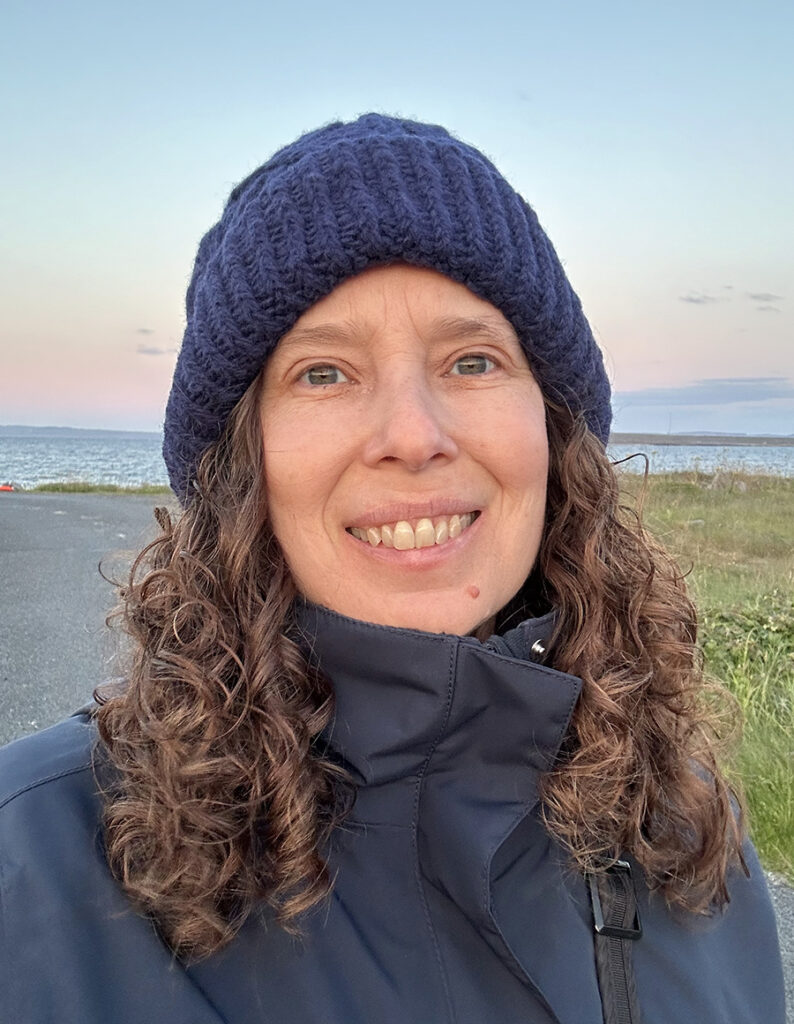
Kristin Dowell
Associate Professor
Indigenous Art & Film
PhD New York University
3026 William Johnston Building
Dr. Kristin Dowell specializes in art of Native North America with an emphasis on Indigenous cinema and contemporary art. She serves on the Academic Advisory Board for FSU’s Native American and Indigenous Studies Center. She has carried out collaborative, community-based research with Indigenous artists and filmmakers for over 20 years. Her single-author book, Sovereign Screens: Aboriginal Media on the Canadian West Coast (2013), was the first ethnographic monograph of the vibrant and dynamic Indigenous media world in Vancouver. Her research investigates the active processes through which Indigenous filmmakers and artists express and enact visual sovereignty through their on-screen aesthetics and off-screen production practices.
Public-facing engagement through film curation, community-driven oral history projects and museum practice is central to her work. She has worked at or held research affiliations with a variety of museums including the Museum of Anthropology at the University of British Columbia, and the Smithsonian’s National Museum of the American Indian (NMAI). Film curation is an integral aspect of her research practice, and she has worked for several Native film festivals including those sponsored by NMAI and the Museum of Modern Art (MoMA) in New York. She was a co-founder of the Native Crossroads Film Festival at the University of Oklahoma where she served as a film curator for three years.
She is completing her second book, Digital Sutures: Family and Cultural Memory in Indigenous Women’s Films, under contract with Wayne State University Press. Digital Sutures analyzes how Indigenous women filmmakers re-define film genres, such as stop-motion animation, handmade cinema, and experimental documentary, to recuperate Indigenous family histories, ancestral knowledge, and cultural memory.
Professor Dowell is Irish American and a proud speaker of the endangered Irish language with family ties to the townland of Gallach (Castleblakeney) in County Galway. She was the curator of Talamh agus Teanga: Land and Language in Contemporary Irish Art and continues to develop research projects on the Irish language and contemporary Irish art.
Contact and Files
Advisees
Courses
Graduate Courses:
Circumpolar Indigenous Art
Contemporary Native American Art
Cultural Heritage: Theory and Practice
Global Indigenous Cinema
Undergraduate Seminars:
Contemporary Native American Art
Global Indigenous Cinema
Undergraduate Courses:
Introduction to Native American Art & Culture
Introduction to Irish Art
Digital Media for Museums
Museum Object
Selected Publications
Digital Sutures: Family and Cultural Memory in Indigenous Women’s Films. Wayne State University Press. Under contract.
“Lindsay McIntyre: Indigenous Handmade Cinema.” JCMS (Journal of Cinema and Media Studies). 62, no. 2. (Winter 2023): 183-188.
Video Production Handbook. Washington, D.C.: Smithsonian Center for Folklife and Cultural Heritage, 2021. Translated into Tibetan and Mandarin, 2021.
“Review: Now Is the Time.” B.C. Studies. 207(Autumn 2020): 130-131.
“Digital Sutures: Experimental Stop-Motion Animation as Future Horizon of Indigenous Cinema.” Cultural Anthropology 33: 2 (May, 2018): 189-201.
“Residential Schools and ‘Reconciliation’ in the Media Art of Skeena Reece and Lisa Jackson.” Studies in American Indian Literatures 29: 1 (2017): 116-138.
“Four Faces of the Moon: Spirit and Memory: Resistance and Resilience.” Exhibition catalogue essay for Four Faces of the Moon: Amanda Strong. Grunt Gallery, 2017.
“Experimental Digital Media on the Cutting Edge.” In Art in Motion: Native American Explorations of Time, Place and Thought. Eds. John Lukavic and Laura Caruso. Denver: Denver Art Museum Press, 2016.
“‘The Future Looks Rad From Where I Stand’: A Review of Claiming Space: Urban Aboriginal Youth Voices at the UBC Museum of Anthropology.” Anthropologica 57:1 (2015): 239-246.
Sovereign Screens: Aboriginal Media on the Canadian West Coast. University of Nebraska Press, 2013.
“Pushing Boundaries, Defying Categories: Aboriginal Filmmaking on Canada’s West Coast” in Native Art on the Northwest Coast: A History of Changing Ideas. Eds. Jennifer Kramer, Charlotte Townsend-Gault and Ki-ke-in. Vancouver: University of British Columbia Press, 2013. Book was winner of 2015 Canada Prize in Humanities.
“Performance and ‘Trickster Aesthetics’ in the Work of Mohawk Filmmaker Shelley Niro” in Native American Performance and Representation. Ed. Steve Wilmer. Tucson: University of Arizona Press, 2009.
“Performing Culture: Beauty, Cultural Knowledge, and Womanhood in Miss Navajo.” Transformations 20: 1 (2009): 132-141.
“Indigenous Media Gone Global: Strengthening Identity On- and Offscreen at the First NationsFirst Features Film Showcase.” American Anthropologist 108: 2 (2006):376-384.